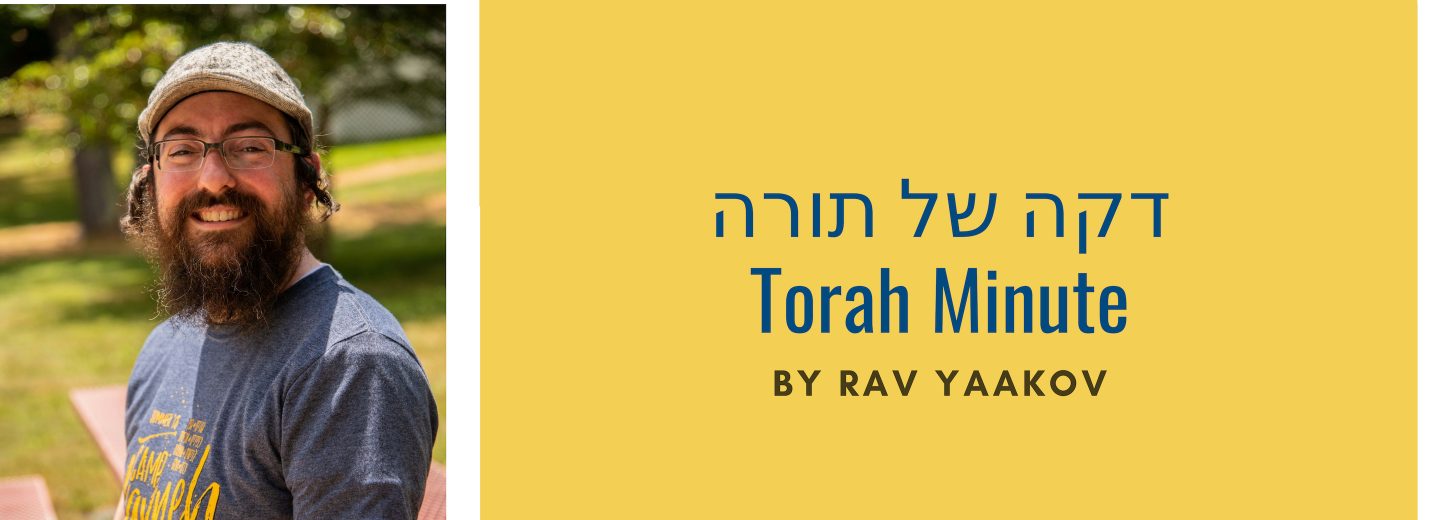Ki Tavo – Is It Really the Thought That Counts?
אֲרַמִּי֙ אֹבֵ֣ד אָבִ֔י וַיֵּ֣רֶד מִצְרַ֔יְמָה וַיָּ֥גָר שָׁ֖ם בִּמְתֵ֣י מְעָ֑ט וַֽיְהִי־שָׁ֕ם לְג֥וֹי גָּד֖וֹל עָצ֥וּם וָרָֽב (כ”ו, ה’)
“An Aramean [sought to] destroy my forefather, and he went down to Egypt and sojourned there with a small number of people, and there he became a great, mighty and numerous nation.” (26:5)
Does that verse sound familiar? Perhaps you’ve heard it somewhere before?
In this week’s parsha, we learn about the mitzva of bikkurim, or first fruits. One aspect of this mitzvah was that it required the person bringing the bikkurim to recite special verses to the priest after bringing the bikkurim to the Temple.
But hold on – If the purpose of bringing the bikkurim in the first place was to show our gratitude to God for all that God has done for us, wouldn’t it be enough for us to simply offer the bikkurim themselves? Why is it necessary to recite these particular verses?
Let’s take a look at the rest of the verses in context and see if they offer us a hint:
“The Egyptians treated us cruelly and afflicted us, and they imposed hard labor upon us. So we cried out to the Lord, God of our fathers, and the Lord heard our voice and saw our affliction, our toil and our oppression. The Lord brought us out from Egypt with a strong hand and with an outstretched arm, with great awe, and with signs and wonders. And God brought us to this place, and God gave us this land, a land flowing with milk and honey. So now, behold, I have brought the first of the fruit of the ground which You, O Lord, have given to me.”
With that context in mind, the Sefer HaChinuch explains that the words that come out of our mouths have the power to affect our thoughts, and even more than that, to inscribe in our hearts the seriousness and truth of those words. If we were to simply deliver our bikkurim to the temple, it wouldn’t force us to recognize the full weight of the kindness that God has done for us! We would only be going through the motions. When we are forced to articulate something by saying it, we truly begin to appreciate its intensity.
From this, we can learn that it is not enough for us to be grateful to God in our hearts for all the good things that happen to us and all the blessings we receive. We must also speak about this with others, because by telling others about the great things that God has done for us, we internalize that message ourselves, becoming close with our Creator.
Questions for your Shabbat table:
- Can you describe a time when talking out loud about something made you realize how important it was or how strongly you felt about it? Why do you think our gratitude works this way?
- Our parsha and the Sefer HaChinuch focus on our gratitude to God. How do you think you could apply this lesson to our gratitude to the people in our lives as well?
Mitzvah of the Week:
- The mitzvah of the week this week is to find as many opportunities as you can to talk about your gratitude and to share it with others.




